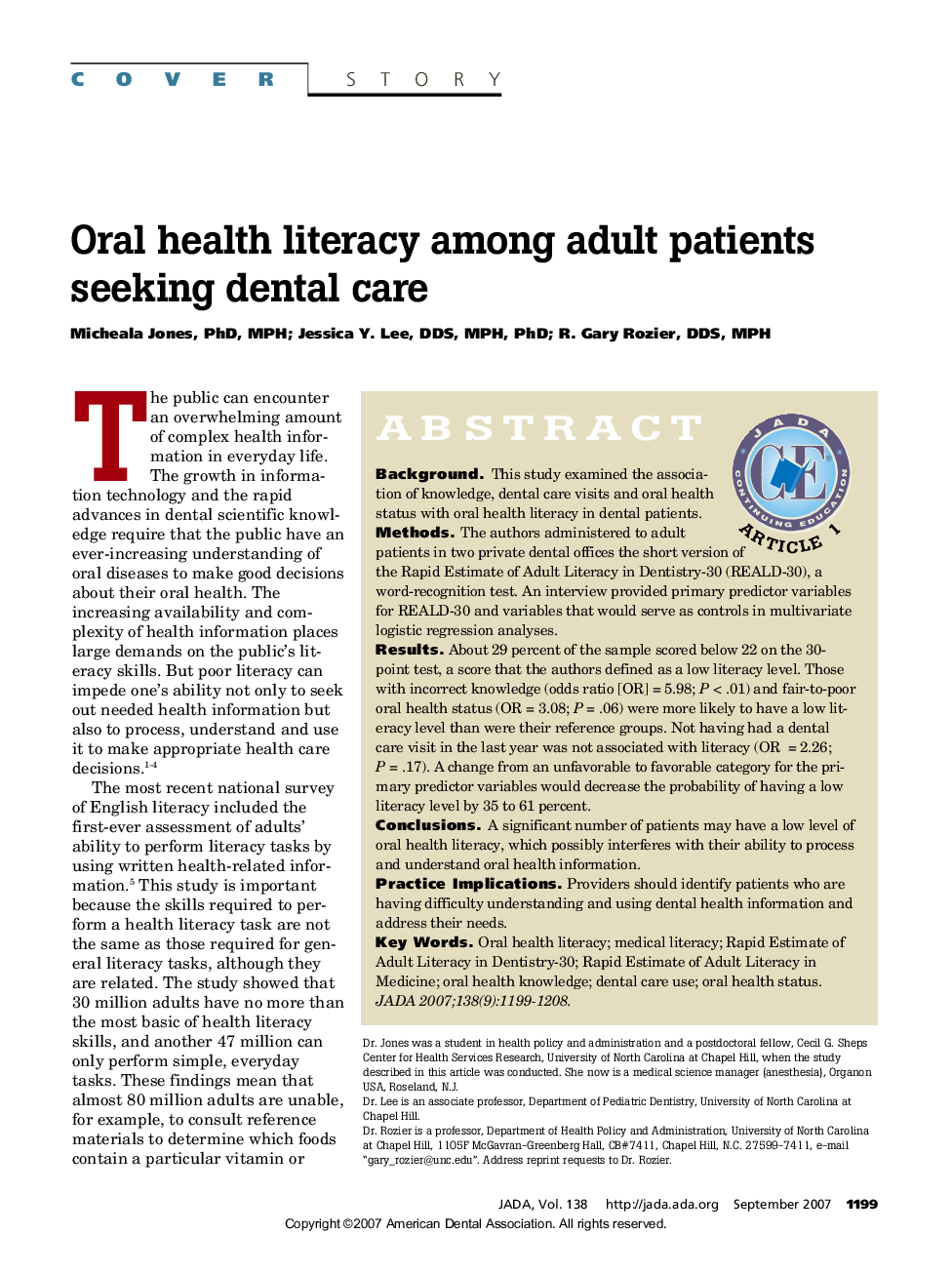| Article ID | Journal | Published Year | Pages | File Type |
|---|---|---|---|---|
| 3140428 | The Journal of the American Dental Association | 2007 | 10 Pages |
ABSTRACT BackgroundThis study examined the association of knowledge, dental care visits and oral health status with oral health literacy in dental patients.MethodsThe authors administered to adult patients in two private dental offices the short version of the Rapid Estimate of Adult Literacy in Dentistry-30 (REALD-30), a word-recognition test. An interview provided primary predictor variables for REALD-30 and variables that would serve as controls in multivariate logistic regression analyses.ResultsAbout 29 percent of the sample scored below 22 on the 30-point test, a score that the authors defined as a low literacy level. Those with incorrect knowledge (odds ratio [OR] = 5.98; P < .01) and fair-to-poor oral health status (OR = 3.08; P = .06) were more likely to have a low literacy level than were their reference groups. Not having had a dental care visit in the last year was not associated with literacy (OR = 2.26; P = .17). A change from an unfavorable to favorable category for the primary predictor variables would decrease the probability of having a low literacy level by 35 to 61 percent.ConclusionsA significant number of patients may have a low level of oral health literacy, which possibly interferes with their ability to process and understand oral health information.Practice ImplicationsProviders should identify patients who are having difficulty understanding and using dental health information and address their needs.
